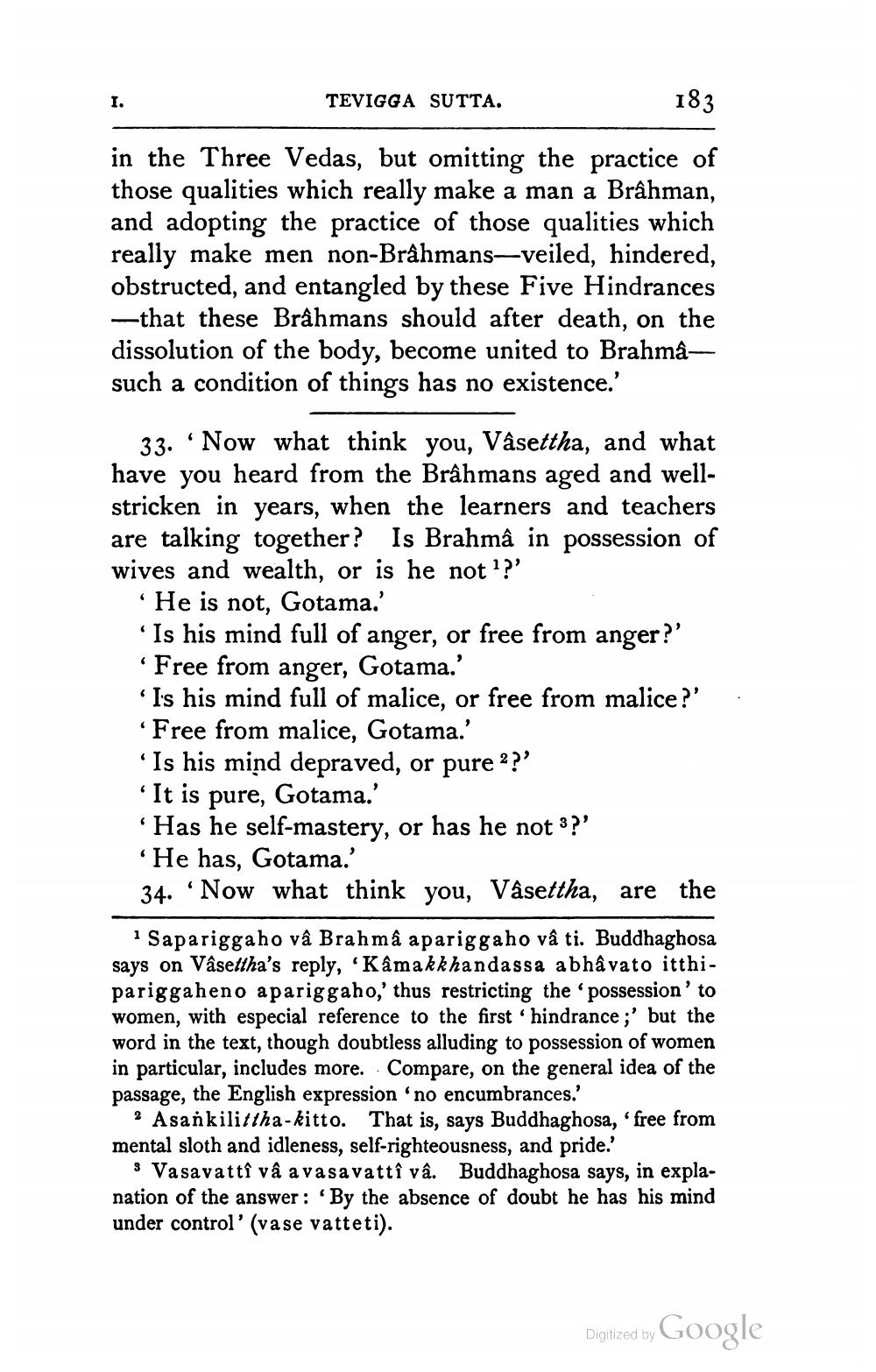________________
TEVIGGA SUTTA.
183
in the Three Vedas, but omitting the practice of those qualities which really make a man a Brâhman, and adopting the practice of those qualities which really make men non-Brâhmans-veiled, hindered, obstructed, and entangled by these Five Hindrances
—that these Brahmans should after death, on the dissolution of the body, become united to Brahmâ— such a condition of things has no existence.'
.
33. 'Now what think you, Vâsettha, and what have you heard from the Brâhmans aged and wellstricken in years, when the learners and teachers are talking together? Is Brahmâ in possession of wives and wealth, or is he not ??'
* He is not, Gotama.' 'Is his mind full of anger, or free from anger?'
Free from anger, Gotama.' Is his mind full of malice, or free from malice?' *Free from malice, Gotama.' 'Is his mind depraved, or pure 2?' • It is pure, Gotama.' 'Has he self-mastery, or has he not 3?' "He has, Gotama.' 34. “Now what think you, Vasettha, are the 1 Sapariggaho va Brahma apariggaho vâ ti. Buddhaghosa says on Vâsettha's reply, `Kâmakkhandassa abhâvato itthiparigga heno aparig gaho,' thus restricting the possession' to women, with especial reference to the first hindrance; but the word in the text, though doubtless alluding to possession of women in particular, includes more. Compare, on the general idea of the passage, the English expression 'no encumbrances.'
Asankilittha-kitto. That is, says Buddhaghosa, 'free from mental sloth and idleness, self-righteousness, and pride.'
3 Vasavattî vâ a vasavattî vâ. Buddhaghosa says, in explanation of the answer : By the absence of doubt he has his mind under control' (vase vatteti).
Digitized by Google




